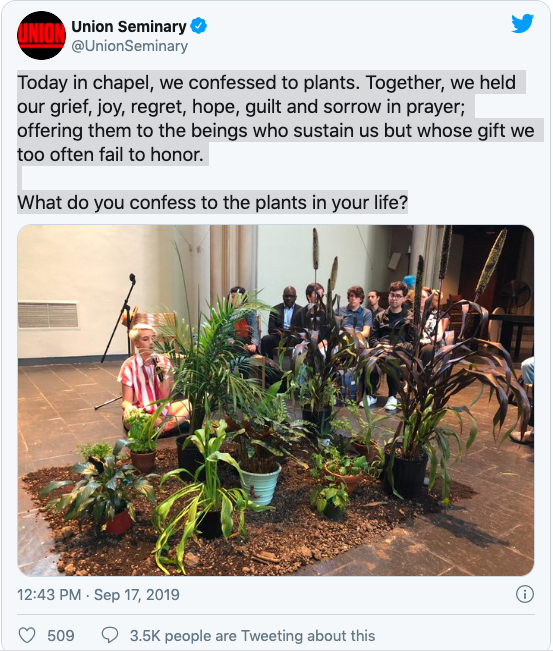|
Just a few weeks ago, a Canadian journalist gave me the perfect excuse to get out of mowing. In her article entitled, “Is it Time to De-Colonize Your Lawn?” she makes the case that backyard lawns are vestiges of European colonialism and we should stop cutting the grass. While this may seem an innocuous article that reflects fringe thinking, it actually serves as a good reminder of how important it is to understand the worldview of others and to evaluate that worldview in light of a Biblical worldview. (It’s also not as fringe as you might think.) Here’s the passage in the article that gives us a big clue regarding the worldview of the experts who are cited: “What is a lawn but a statement of control over nature?” asks John Douglas Belshaw, a Canadian history professor at Thompson Rivers University in Kamloops, B.C. “That’s a huge part of settler culture. You see that river there? We can dam that. We can organize that water, we can make that water work for us. It’s essentially the same mindset. I can reorganize this landscape, flatten it, plant lawn, find a non-indigenous species of plant, of grass, and completely extract anything that’s not homogenous, that doesn’t fit with this green pattern and control it ... A backyard with a big lawn is like a classroom for colonialism and environmental hostility.” So how do these assumptions square with a Biblical worldview? To start, we need only to look to humanity’s beginning in the Garden of Eden to find that God’s original intent for us is actually to exert good and Godly control over nature. In Genesis 1:28, Adam and Eve were told to “Be fruitful and increase in number; fill the earth and subdue it. Rule over the fish of the sea and the birds of the air and over every living creature that moves on the ground.” Listen to the words God chose in describing man’s relationship to the created order: fill, subdue, rule. Clearly, our role as humans is to continue the grand work of creation and cultivation that God began on day one. This is fundamental to our identity and our calling. In direct contrast to a Biblical worldview, Professor Belshaw offers a very different view of humanity and our relationship to the created order. Instead of wise and loving cultivation and creation of places of beauty and function, he suggests that to use creation in any way is environmental hostility. Where we as Christians see opportunities to obey and glorify God and wrestle some aspect of creation into order and beauty, Belshaw sees a violent act that is categorically wrong. This is a prime example of the logical consequences of non-Biblical ideas about the way things are. If you deny God and His will for humanity, you’re left with a vacuum into which just about anything can (and does) take His place. Even plants. Lest you think this idea of “cutting the lawn is violence” is a weird outlier, check out this 2019 Twitter post from the very progressive Union Theological Seminary in NYC: We and our kids are constantly bombarded with truth claims that are completely antithetical to a Biblical worldview. God’s plan to help us combat these ideas is simple—live a Deuteronomy 6 kind of life, where we immerse ourselves and our children in a Biblical worldview at all times and in all places—including the front lawn.
Comments are closed.
|
Cultivating godly influencersWilmington Christian School provides a distinctively Christian, innovative education that effectively develops Godly influencers who are well prepared for life after high school and who impact the culture for Christ. Archives
May 2024
Categories
All
|
|
Wilmington Christian School provides a distinctively Christian, innovative education that effectively develops Godly influencers who are well prepared for life after high school and who impact the culture for Christ.
Wilmington Christian School admits students of any race, color, national and ethnic origin to all the rights, privileges, programs, and activities generally accorded or made available to students at the school. It does not discriminate on the basis of race, color, national and ethnic origin in administration of its educational policies, admissions policies, scholarship and loan programs, and athletic and other school-administered programs. |
|
|
© Copyright Wilmington Christian School. All Rights Reserved.
Website designed by PROSPER Creative Design
Website designed by PROSPER Creative Design



